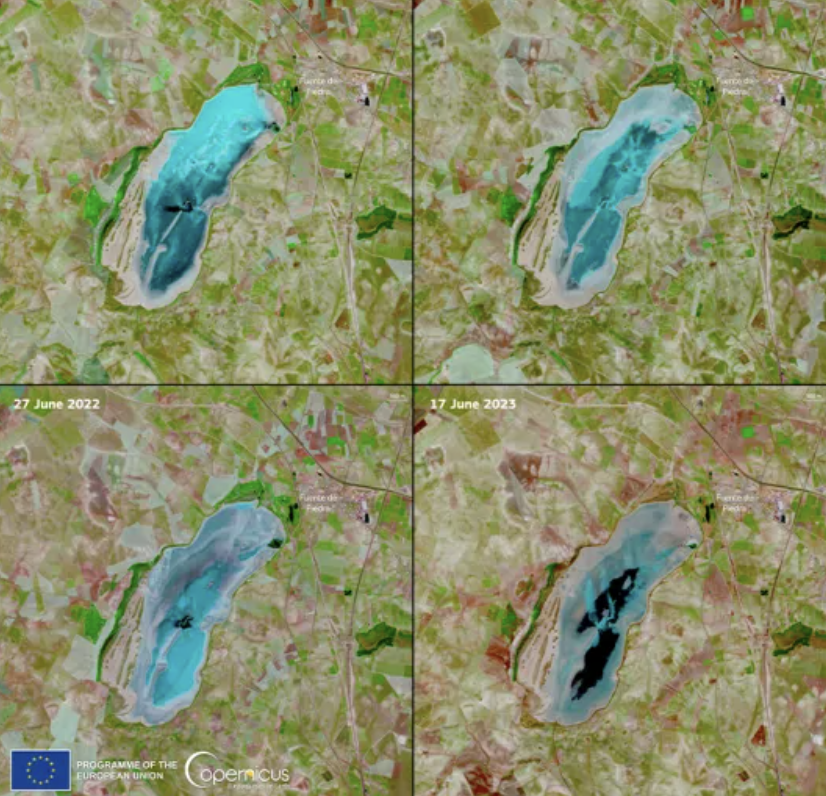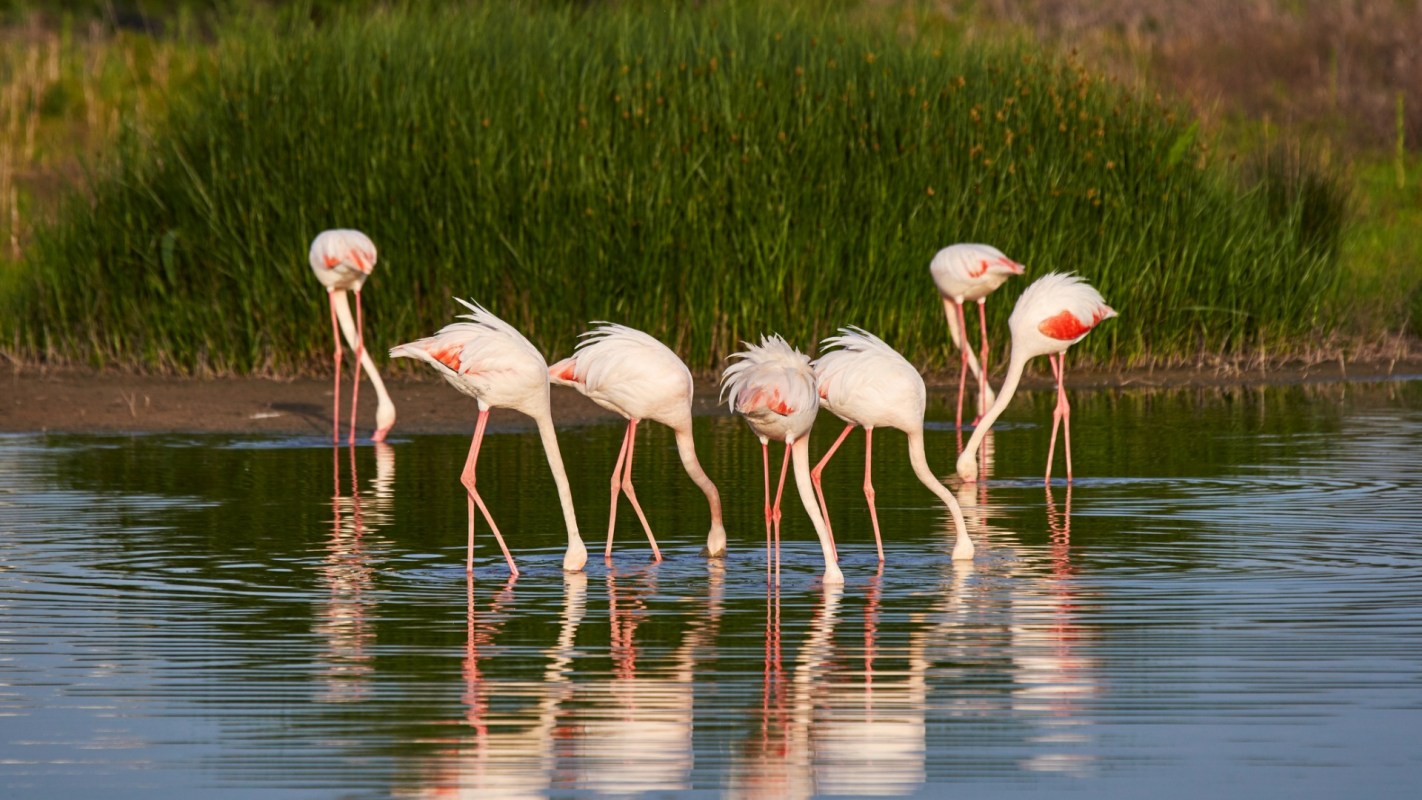One of Spain's most famous lagoons is a lot less pink this year, and locals are worried.
The Fuente de Piedra lagoon was declared part of a natural reserve in 1984, and since then, more than 200,000 flamingo chicks have hatched there. According to a report from Yahoo News Australia, the wetlands are diminishing, forcing thousands of flamingos that normally flock there to find new breeding grounds.
What's happening?
Each year, thousands of flamingos (and other migratory birds) flock to the lagoon to breed, creating one of the largest colonies of the wading birds in Europe. This year, however, only a few dozen adults have been spotted as a prolonged drought has dried up the lagoon, forcing the birds to settle elsewhere.
This spring was Spain's hottest and second driest since 1961, and BBC News reported that by mid-May, the country had seen 28% less rain than expected. The high temperatures, much like those scorching areas across the globe, are expected to continue through the summer. Locals are concerned.
Alberto Gonzalez Sanchez, a 53-year-old local, told Reuters that "it's a shame" to see how much things have changed.
"Here in summer, people used to bathe [here] just a few years ago, so it's a shame, also for the tourism and people that come here, for those like me who live here and walk around every day," he said.

Why is this lagoon shrinking concerning?
The shrinking of this lagoon has dire implications for the environment and the local economy. In Spain News reported that the absence of flamingos has caused the number of visitors to decline, which means a loss in tourism dollars.
Habitat loss, which is caused by the overheating of our planet, is also the primary threat to the survival of wildlife. That includes the birds who rely on this lagoon for breeding.
Additionally, due to Earth's rising temperatures, Spain is experiencing water shortages affecting crops, livestock, and reservoir levels.
What can be done to stop the lagoon from shrinking further?
To stop the situation from worsening, the local government has prohibited the use of the water supply for filling swimming pools, irrigating gardens, rinsing facades, or washing vehicles.
Individually, we can help stop the overheating of our planet by avoiding single-use plastics, integrating clean energy like solar or wind at home when possible, and limiting our burning of methane gas by taking public transportation, riding a bike, or upgrading to an electric vehicle.
Join our free newsletter for cool news and cool tips that make it easy to help yourself while helping the planet.









